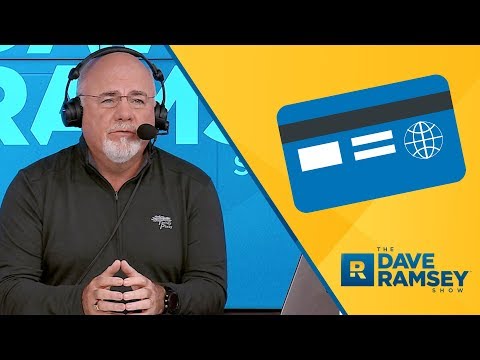Oh, green grass and high tides! We’ve all looked at our credit card statements with wide eyes and whimpering wallets. But what if we told you there’s a beacon of light ready to guide us out of the tunnel of high-interest credit card payments? Yup, you guessed it right – it’s credit card refinancing – the golden ticket to financial freedom. Buckle up, folks, let’s dive right in.
I. Understanding Refinancing Credit Card Debt
A. The Definition: What is Credit Card Refinancing
“Credit card refinancing” – sounds fancy, right? But it’s just a sophisticated term describing the process of replacing your high-interest credit card payments with a single, lower-interest payment¹. Imagine trying to run a marathon in your Ferragamo shoes – it’s pricey and exhausting quite like your current credit card debt. Refinancing is just chucking those shoes for a pair of trainers – comfortable and affordable.
B. The Process of Refinancing Credit Card Debt
It’s essentially stepping on the dance floor with a partner (bank or credit union) offering easier beats (lowered interest rates). You switch up your partners – your old debt getting cleared by a new loan. Just remember, like every dance, this too needs grace, patience, and the right partner!
C. The Pros and Cons of Refinancing Credit Card Debt
Refinancing credit card debt has both its charm and its challenges. The pros jump right at you – lower interest rates, easier monthly payments, and the end of multiple bills. But the cons sneak up on you – initial drop in credit score and a potential cycle of debt if not managed well.

II. The Importance of Credit Score in Refinancing Credit Card Debt
A. Role of Credit Score in Credit Card Refinancing
Your credit score is that popular kid in school – always in the spotlight. In credit card refinancing, it usually determines the interest rate you’re offered. Like how Ronnie Coleman has his muscles, you need your high credit score – to show off to your lenders for refinancing at lower interest rates.
B. High Credit Score and its Impact on Refinancing Opportunities
A high credit score can swing the gates of refinancing opportunities wide open. Lenders are more likely to offer you favorable rates, just like a front-row ticket to your favorite concert.
C. How Timely Monthly Payments Impact your Credit Score
Your credit score behaves almost like a puppy – treat it well, and it’s loyal; neglect it, and it’s trouble. Consistent, timely payments are treats for your credit score, keeping it well-fed and happy, bolstering your refinancing opportunities.

| Concept | Description |
|---|---|
| What is refinancing credit card debt? | This process involves replacing high-interest credit card payments with a single, lower-interest payment. Two ways to refinance: credit card refinancing loan or a balance transfer credit card. |
| When to refinance | Refinancing is beneficial if: you have a high credit score, you can afford timely monthly payments, the new option doesn’t include fees and associated costs that aren’t cost-effective. |
| Impact on credit score | Refinancing might lower your credit score initially, but it can improve over time as lenders prefer lesser debt amount and/or lower monthly payments. The score can recover within a few months after an initial dip. |
| Credit card refinancing mechanism | This strategy involves taking out a personal loan to pay off your credit card debt. It results in a single loan and single payment, making it easier to manage. If you can qualify for a lower interest rate or need to decrease your monthly payments, refinancing credit card debt is a good solution. |
III. Considering Refinancing Options for Your Credit Card Debt
A. Credit Card Refinancing Loan: An Overview
This is when you replace Hercules (your credit card debt) with Philoctetes (refinancing loan). It’s like taming the beast with a personal loan and one manageable payment. If you qualify for lower interest rates or need to cut down your monthly payment, this could be your way out².
B. Balance Transfer Credit Card: How does it Work
Think of it as moving homes, from a high-rent neighborhood (high-interest credit card) to a more affordable one (new card with lower or zero interest). All your balance shifts to this new address. But remember, it’s not forever – the low or zero interest lasts for an introductory period, usually 12-21 months.
C. Comparing Credit Card Refinancing Loan and Balance Transfer Credit Card
It’s the referee moment – deciding which player suits your field. Balance transfer cards might save more in short-term, but don’t forget that hefty balance transfer fees. A refinancing loan could secure lower rates for longer. So, make your decisions based on the long-term game.

IV. Analyzing Costs and Fees in Refinancing Credit Card Debt
A. Exploring Fee Structures of Different Refinancing Options
There are different costumes to this party – balance transfer fees could be 3-5% of the transfer amount, and personal loans might come with origination fees. But remember, if the coat doesn’t fit, don’t wear it – choose what best matches with your financial attire.
B. Estimating Potential Savings with No-Fee Options
Some balance transfer cards waive off the initial transfer fee and offer a no-interest introductory period. If managed well, this could be your golden goose for savings. Personal loans too might come without an origination fee. So hunt wisely, as savings hide in these little corners.
C. The Long-Term Cost Implications of Refinancing Credit Card Debt
Refinancing might seem like your sunny beach holiday, but remember every holiday comes with a cost. It can impact your overall costs in the long run if the interest accumulates. So pack your bags wisely before diving into this financial voyage.

V. Refinancing Credit Card Debt and your Credit Score
A. Immediate Impact of Refinancing on Credit Score
Refinancing has its little secrets and one is its initial mooch on your credit score. But it’s just like when you first dipped into cold water – the initial shock might sting, but then it’s all normal.
B. Long-term Benefits of Refinancing for your Credit Score
Refinancing your credit helps you manage your payment schedules more efficiently and over time, can improve your credit score. Initially, it may hurt a bit but akin to running a marathon, it’s all worth it at the finish line.
C. Strategies to Minimize Impact and Improve Credit Score Post-Refinancing
Control the steering wheel of your credit score by keeping your balance low and on-schedule with payments. Consider strategies like using your old card for small purchases and paying off your balance immediately to keep your account active.

VI. 7 Easy Steps for Crazy Savings through Credit Card Refinancing in 2024
A. Step 1: Evaluate Your Current Debt Situation
Take a moment, sit back, and analyze your current financial stance. Unveil all your credit card debts and chew on those interest rates. It’s your financial health check-up.
B. Step 2: Check Your Credit Score
Dive into your credit score waters. Remember, it’s your bargaining chip – the higher it is, the better.
C. Step 3: Consider Different Refinancing Options
Know your options – Balance Transfer Credit Card or Personal Loan for credit refinancing. Measure their pros and cons against your situation.
D. Step 4: Compare Costs and Fees of Potential Options
What’s your cost? Scrutinize the fee structures of potential refinancing options, weighing them against the corresponding benefits.
E. Step 5: Apply for Credit Card Refinancing
Armor on; now march towards your lender, armed with your credit score and application. It’s your braveheart moment.
F. Step 6: Plan for Managing New Lower-Interest Payment
You’ve got your new lower-interest payment, now what? Plan. Budget. Execute. You’re the commander of this army now.
G. Step 7: Monitor Your Credit Score After Refinancing
Keep an eagle eye on your credit score post refinancing. Tweak your strategies based on its movement. It’s your financial heartbeat, after all.

VII. Tracing Your Path Towards Financial Freedom
A. Maintaining Strong Financial Practices Post Refinancing
Post refinancing, don’t just let loose. Maintain good financial habits – timely payments, keeping credit utilization low, and maintaining a rainy-day fund.
B. Embracing Lower-Interest Payments for Improved Savings
A metaphorical bear hug for lower-interest payments can lead to improved savings. Redirect these savings towards debt clearance or investments. How’s that for turning the tables?
C. Visualizing a Debt-Free Future: The End Goal of Refinancing
At the end of the tunnel of refinancing is the bright light of a debt-free future. Paint this picture in your mind and work towards it. That, dear reader, is the ultimate end goal.
Refinancing credit card debt paves your path towards financial freedom and reshapes your fiscal outlay. Remember, your financial journey is unique. Treat it as a piece of art. Each stroke you make with refinancing shapes your financial canvas. Good luck and happy savings, folks!
Is it possible to refinance credit card debt?
Absolutely, it’s possible to refinance credit card debt! By refinancing, you can consolidate all the money you owe into a new loan, usually with a lower interest rate. It’s a smart move if you’ve got high interest rates or multiple cards to juggle.
Is it a good idea to refinance your credit card?
Refinancing your credit card can be a grand idea, if played right. When you’re stuck with high interest rates, it feels like you’re in a never-ending cycle of debt. Refinancing to a lower rate can help you escape that cycle.
Will refinancing damage my credit score?
Refinancing might create a little hiccup on your credit score, true. Initially, your lender will request a hard pull of your credit report, which could knock a few points off. But, don’t worry, the drop is typically temporary!
What is refinancing credit card debt?
In simple terms, refinancing credit card debt is like trading in that old clunker for a shiny new ride. You’re essentially swapping out your high-interest debt with a new loan that has more favourable terms and a lower interest rate.
How can I legally get rid of my credit card debt?
Getting rid of credit card debt legally involves some elbow grease. You can start by evaluating your expenses, making a budget, and focusing on paying off your debt. If you’re in a tough spot, consider speaking with a credit counselor or looking into debt consolidation or bankruptcy.
Is there forgiveness for credit card debt?
Now hold on there! There isn’t an automatic “get out of jail free” card for credit card debt. While some may qualify for forgiveness programs due to financial hardship, most people will need to craft a solid payment plan to tackle their credit card debt.
Does debt consolidation hurt your credit?
Yes and no. Consolidating your debt can ding your credit initially, as lenders carry out a hard pull on your credit. But in the long run, if you’re diligent with your repayment plan, you may actually see your credit improve!
How can I get out of debt without ruining my credit?
Wanna get out of debt without ruining your credit? It’s a balancing act. You have to make your payments on time, create a budget that minimizes unnecessary expenses, and focus on paying down high-interest debts first.
Is National Debt Relief legit?
You bet, National Debt Relief is a legitimate debt settlement company. They negotiate with creditors on your behalf, trying to reduce the outstanding amount of your debts. Just keep in mind that debt settlement can negatively impact your credit score.
What are the negative effects of refinancing?
Whoa there, refinancing isn’t all sunshine and rainbows. While it can lower your interest rate and monthly payments, it can also increase your loan term, lead to higher aggregate interest payouts, and cost you in terms of refinement fees.
How long does it take for your credit to recover after refinancing?
After you’ve refinanced, your credit should start to recover within a few months, provided you’re making repayments on time. It’s not an overnight process but keep the faith, things will look up!
Does refinancing mean starting over?
Refinancing isn’t necessarily a case of “back to square one”. True, you’re taking out a new loan, but it’s one with better terms, lower interest rates and a payment that’s more manageable.
Why do I owe more after refinancing?
That extra you owe after refinancing might just be a combination of closing costs, points, or maybe even a prepayment penalty from your original loan. Always do the math and read the fine print!
When should you refinance a debt?
The ideal time to refinance a debt is when interest rates are low, you have a good credit score, and you’re financially stable. But remember, everyone’s situation is unique, ditch the cookie-cutter approach and opt for what works best for you!
What are the cons of refinancing debt?
The cons of refinancing debt include stretching out your repayment period, possibly paying more in total interest, incurring refinancing costs and risking your collateral if you can’t make the payments.
Does debt consolidation hurt your credit?
When you refinance debt, you’re essentially replacing old debt with a new loan, preferably at a lower interest rate. It’s much like taking an old textbook and replacing it with a new one.
What happens when you refinance debt?
One kick-ass method to get rid of high-interest credit card debt is to transfer the balance to a card with a lower APR. Consolidating your credit card debt through a personal loan or home equity loan can also be a viable option.



